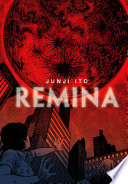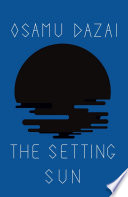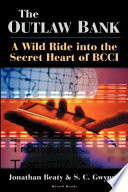Discover our list of authors like Osamu Dazai, who blend Japanese tradition and Western influence through introspective storytelling.
When exploring the best Japanese authors, readers will find a lively mix of classic Japanese storytelling and contemporary Western influences. Authors like Osamu Dazai stand at this intersection, enriching their narratives with themes from both worlds. The writers on this list, renowned for exploring the human condition, existentialism, and societal critique, reflect a diverse and profound literary tradition. Their work spans decades, creating a compelling gateway into the nuanced world of Japanese literature.
Osamu Dazai’s work often blends autobiographical and existentialist fiction elements, featuring self-reflective narratives, deep psychological exploration, and themes of melancholy, guilt, and identity. His storytelling is frequently influenced by traditional Japanese and Western literature, creating a distinct style that sets him apart. Dazai’s stories often address human nature, society, and existential crises. Notable works like No Longer Human and The Setting Sun are prime examples of Dazai’s introspective and sometimes dark storytelling style.
In 2025, Dazai’s influence continues to resonate with contemporary readers seeking authentic explorations of mental health, alienation, and the search for meaning in modern life. His unflinching honesty about depression and social anxiety has made him particularly relevant to younger generations grappling with similar issues in our increasingly connected yet isolating world.
Must-Read Authors Like Osamu Dazai
For more fantasy recommendations, you might also enjoy exploring best fantasy authors, authors like Brandon Sanderson, authors like George R.R. Martin, or discover our comprehensive guide to best fantasy authors.
1. Yukio Mishima, 1925 - 1970
Yukio Mishima, born Kimitake Hiraoka, was a renowned Japanese author, playwright, poet, model, and actor. Known for his avant-garde and modernist style, Mishima was a unique and controversial figure in 20th-century Japanese literature. His works often delved into themes of beauty, death, and political ideologies. Mishima was nominated for the Nobel Prize in Literature three times, a testament to his influence and impact on the literary world.
His life, however, was as dramatic as his novels; he staged a failed coup attempt and committed ritual suicide the same day. This dramatic end has only added to his mystique and literary legacy, making him a figure who embodied the very existential themes he explored in his writing.
Confessions of a Mask, one of Mishima’s most iconic novels, is a semi-autobiographical work. The novel takes a deep dive into the mind of its protagonist Kochan, a man grappling with his homosexuality in post-war Japan, a traditionally homophobic society. Confessions of a Mask portrays Kochan’s journey towards self-acceptance and delves into the duality of identity in a stigmatizing society, making it a fascinating study of the human psyche and a tragic social commentary.
Like Dazai’s work, Mishima’s novels explore the disconnect between one’s inner self and the face presented to society, making him essential reading for those who appreciate psychological depth and social critique.
“What I wanted was to die among strangers, untroubled, beneath a cloudless sky.”
- Yukio Mishima, Confessions of a Mask
2. Haruki Murakami, 1949 -
Haruki Murakami is a contemporary Japanese writer known for his distinctive blend of magical realism and postmodernism. Murakami initially pursued a career in business before shifting his attention to writing. His first book, Hear the Wind Sing, won the Gunzo Prize for New Writers, giving him a promising start in literature. Since then, his works have been translated into 50 languages, earning him numerous awards, including the Franz Kafka Prize and the Jerusalem Prize.
In 2024 and 2025, Murakami continues to be one of the most widely read Japanese authors globally, with his latest works exploring themes of isolation and disconnection that resonate strongly with post-pandemic readers. His ability to capture the alienation of modern life through surreal storytelling makes him a natural successor to Dazai’s exploration of existential themes.
Kafka on the Shore, arguably Murakami’s best-known novel, is a testament to his distinctive narrative style. The book alternates between two parallel narratives, one following a young boy named Kafka, who runs away from home, and the other tracking a simple man named Nakata, who can converse with cats. As the story progresses, the two narratives weave together, creating a captivating tapestry of themes such as fate, identity, and the subconscious.
What connects Murakami to Dazai is their shared exploration of characters who feel disconnected from society and themselves, though Murakami approaches these themes through magical realism rather than Dazai’s stark realism.
“The pure present is an ungraspable advance of the past devouring the future. In truth, all sensation is already memory.”
- Haruki Murakami, Kafka on the Shore
3. Ryunosuke Akutagawa, 1892 - 1927
Ryunosuke Akutagawa was an influential figure in Taisho-era literature in Japan. He wrote over 150 short stories before his tragic death by suicide. Though his life was brief, his literary contributions were significant, and his works continue to be celebrated today. The prestigious Akutagawa Prize, one of Japan’s top literary awards, was named in his honor.
Akutagawa’s suicide at the age of 35, driven by what he called “a vague unease,” parallels Dazai’s own struggles with mental health and ultimate suicide, making them kindred spirits in Japanese literature. Both authors wrote with an acute awareness of life’s fragility and the darkness that can consume the human spirit.
One of Akutagawa’s most enduring tales, Rashomon, exemplifies his talent for delivering rich narratives steeped in psychological insight. This short story, set in twelfth-century Kyoto, depicts a servant’s moral dilemma during societal decay and despair. Akutagawa’s mastery of ambiguity and his knack for exploring the human condition makes Rashomon a timeless work of literature.
Like Dazai, Akutagawa possessed an unflinching ability to examine the darker aspects of human nature and society, making moral ambiguity a central theme in his work.
“If men lie in this world, what makes you so sure they’ll be honest in the next?”
- Ryunosuke Akutagawa, Rashomon
4. Natsume Soseki, 1867 - 1916
Considered one of the greatest writers in modern Japanese history, Natsume Soseki was born during Japan’s Meiji era. He is recognized for his ability to depict the complexities of human nature and the Japanese society of his time. Soseki’s influence on Japanese literature is immeasurable; his portrait was even featured on the Japanese 1000 yen note for two decades, a testament to his enduring legacy.
Soseki’s work often explored the psychological effects of Japan’s rapid modernization, themes that would later resonate in Dazai’s exploration of individual alienation in a changing society. Both authors understood how societal transformation can leave individuals feeling lost and disconnected from their cultural roots.
One of Soseki’s most acclaimed works, I Am a Cat, provides a satirical commentary on upper-middle-class Japanese society during the Meiji era. The novel is narrated from the perspective of an unloved and unwanted cat observing the follies and eccentricities of humans. Through humor and wit, Soseki critiques the pretentiousness and shortcomings of his contemporary society, making I Am a Cat a remarkable piece of social satire.
The outsider’s perspective in I Am a Cat mirrors the alienation felt by many of Dazai’s protagonists, who observe society from the margins while struggling to find their place within it.
“Living as I do with human beings, the more that I observe them, the more I am forced to conclude that they are selfish.”
- Natsume Soseki, I Am a Cat
5. Kenzaburo Oe, 1935 - 2023
Born in the rural village of Ōse on Shikoku Island, Kenzaburo Oe is one of Japan’s most revered contemporary authors. His personal experiences largely influence his work and explore themes of social and political issues in post-war Japan. He was awarded the Nobel Prize in Literature for creating “an imagined world, where life and myth condense to form a disconcerting picture of the human predicament today.”
Oe’s death in 2023 marked the end of an era in Japanese literature, but his influence on contemporary writers exploring themes of disability, family, and social responsibility continues to resonate. Like Dazai, Oe drew heavily from personal experience to create fiction that challenged social norms and explored human vulnerability.
One of Oe’s most notable novels, A Personal Matter, is a semi-autobiographical narrative that deals with a father’s struggle to accept his newborn son, who has a brain hernia. The protagonist Bird is tormented by shame, fear, and a sense of personal failure, leading him to question his role as father and husband in the family. This deeply moving novel profoundly explores the human condition and personal redemption.
The raw honesty with which Oe examines personal failure and moral compromise echoes Dazai’s unflinching self-examination in works like No Longer Human.
“Shuddering, Bird peered at the details of the map. The ocean surrounding Africa was inked in the teary blue of a winter sky at dawn.”
- Kenzaburo Oe, A Personal Matter
6. Junichiro Tanizaki, 1886 - 1965
Junichiro Tanizaki was one of Japan’s most famous novelists. Tanizaki’s literature was often characterized by eroticism and his fascination with cultural nostalgia. His portrayal of complex women characters and exploration of sensual aesthetics set him apart from other contemporary writers. During his lifetime, Tanizaki was awarded the Imperial Prize in Literature and the Order of Culture for his contributions to Japanese literature.
While Tanizaki’s work differs from Dazai’s in its sensual focus, both authors shared an interest in exploring the psychological complexities of human relationships and the tension between traditional Japanese values and modern Western influences.
Tanizaki’s The Makioka Sisters is a timeless novel that paints a rich tapestry of pre-war Japanese society through the lives of four sisters from an aristocratic family in Osaka. The novel intricately explores the sisters’ relationships, personal growth, and struggle to maintain the family’s fading prestige in a rapidly modernizing Japan.
The theme of individuals caught between traditional and modern worlds, struggling to maintain dignity while adapting to change, resonates strongly with Dazai’s exploration of characters unable to find their place in society.
“The ancients waited for cherry blossoms, grieved when they were gone, and lamented their passing in countless poems.”
- Junichiro Tanizaki, The Makioka Sisters
7. Kobo Abe, 1924 - 1993
Kobo Abe was a leading figure in contemporary Japanese literature. Born Kimifusa Abe in Tokyo, he adopted Kobo as his pen name. Abe was known for his surreal and often nightmarish portrayals of alienation in the modern world. His work blends elements of the avant-garde and the absurd, resulting in narratives that defy conventional classification.
Abe’s exploration of existential alienation and the absurdity of modern existence connects him directly to Dazai’s themes, though Abe expressed these ideas through surreal, Kafka-esque scenarios rather than Dazai’s more realistic psychological portraits.
The Woman in the Dunes, one of Abe’s most celebrated works, is a haunting novel exploring existential despair themes. The protagonist, an amateur entomologist, is trapped in a vast sand dune with a mysterious woman, their existence reduced to the Sisyphean task of shoveling sand. The novel metaphorically explores the human condition, individual freedom, and societal norms.
The sense of being trapped in an meaningless existence, unable to escape the repetitive nature of modern life, mirrors the psychological imprisonment that many of Dazai’s characters experience.
“Some time went by, but the sea still could not be seen.”
- Kobo Abe, The Woman in the Dunes
8. Yasunari Kawabata, 1899 - 1972
Yasunari Kawabata, the first Japanese recipient of the Nobel Prize in Literature in 1968, was an eminent writer known for his delicate lyrical writing style. Born and raised in Osaka, Kawabata’s writing was heavily influenced by his tragic childhood marked by the loss of his parents. His novels are often characterized by their haunting beauty and exploration of loneliness and loss.
Like Dazai, Kawabata’s personal experiences with loss and isolation deeply influenced his writing, creating works that capture the melancholy beauty of human existence. Both authors possessed an ability to find profound meaning in moments of quiet desperation.
In Snow Country, Kawabata delivers a poignant love story set in the snow-laden hot spring town of western Japan. The novel follows the fleeting and tragic relationship between a wealthy Tokyo dilettante and a provincial geisha. The delicate prose and the vivid imagery of the snow-covered landscape create a gloomy atmosphere, mirroring the transient nature of the protagonists’ relationship.
The themes of emotional emptiness, failed connections, and the beauty found in impermanence resonate strongly with Dazai’s exploration of human relationships and the search for authentic connection.
“But Shimamura in his mind had cut the girl off from the man with her and decided from her general appearance and manner that she was unmarried.”
- Yasunari Kawabata, Snow Country
9. Banana Yoshimoto, 1964 -
Banana Yoshimoto, born Mahoko Yoshimoto, is a contemporary Japanese author known for her prose and the engaging exploration of love, loss, and the place of women in society. Her debut novel Kitchen established her as a prominent writer in Japan, and her subsequent works have been translated into more than 20 languages worldwide. Yoshimoto has received numerous awards, including the Izumi Kyoka Prize for Literature.
Yoshimoto’s work brings a more optimistic perspective to themes of loss and recovery that Dazai explored with darker intensity. Her ability to find hope and healing in the midst of grief offers a contemporary counterpoint to Dazai’s more pessimistic worldview while maintaining similar psychological depth.
Kitchen is a compelling novel that explores the themes of love, loss, and the power of food. The protagonist, Mikage, finds solace in the kitchen after her grandmother’s death. Her journey through grief and acceptance is captured beautifully in Yoshimoto’s distinctive, lyrical style. The book’s exploration of modern urban life and gender roles in Japan makes it a resonant read for contemporary audiences.
While lighter in tone than Dazai’s work, Yoshimoto shares his interest in characters who must reconstruct their identity after profound loss, finding new ways to connect with the world around them.
“When my grandmother died the other day, I was taken by surprise.”
- Banana Yoshimoto, Kitchen
10. Yoko Ogawa, 1962 -
Yoko Ogawa is a contemporary Japanese writer recognized for her haunting prose. Ogawa has penned numerous novels and short story collections, exploring themes of love, loss, and the intricacies of human relationships. Her works have earned her many accolades, including the prestigious Akutagawa Prize.
Ogawa’s work shares with Dazai an interest in psychological isolation and the ways in which individuals can become disconnected from their own memories and identities. Her subtle, understated style creates a sense of unease that mirrors the existential anxiety found in Dazai’s work.
The Memory Police, one of Ogawa’s most acclaimed novels, is a dystopian tale of loss and control. Set on a remote island, the story revolves around an authoritarian regime forcing inhabitants to forget objects. This deeply poignant narrative examines the power of memory, the significance of our possessions, and the resilience of the human spirit in the face of adversity.
The theme of individuals losing pieces of themselves and struggling to maintain their identity in an oppressive environment resonates with Dazai’s exploration of characters who feel they are disappearing or becoming “no longer human.”
“No matter how careful we are, we all leave behind little bits of ourselves as we go about our lives.”
- Yoko Ogawa, The Memory Police
11. Hiromi Kawakami, 1958 -
Hiromi Kawakami is a modern Japanese author known for her distinctive narrative style that seamlessly blends the ordinary and the surreal. Born and raised in Tokyo, Kawakami initially pursued a career in science before turning to literature. She has received numerous awards, including the Akutagawa and Tanizaki prizes, solidifying her status as a significant contemporary writer.
Kawakami’s ability to find the extraordinary within ordinary life, and her gentle exploration of human loneliness and connection, offers a contemporary approach to themes that Dazai explored with greater intensity. Her work shows how the search for meaning and connection continues in modern Japanese literature.
The Nakano Thrift Shop is an enchanting novel that unfolds in a thrift shop in Tokyo. Through the lives of four employees, Kawakami deftly explores themes of love, friendship, and the nuances of human relationships. With its quirky characters and subtle humor, the book offers an intimate glimpse into the everyday lives of ordinary people in contemporary Japan.
The focus on characters who exist on the margins of society, finding small moments of connection and meaning in their daily lives, echoes Dazai’s interest in the overlooked and alienated members of society.
“For a while, the brown kraft paper envelope on top of the shelf weighed on my mind.”
- Hiromi Kawakami, The Nakano Thrift Shop
Why These Authors Appeal to Osamu Dazai Fans
What unites these authors with Osamu Dazai is their shared commitment to exploring the psychological depths of human experience, particularly the feelings of alienation, existential anxiety, and the search for authentic identity that characterize modern life. Like Dazai, they are unafraid to examine the darker aspects of human nature and society, often drawing from personal experience to create fiction that feels painfully honest and psychologically truthful.
These writers share Dazai’s interest in characters who exist on society’s margins—whether by choice or circumstance—and who struggle to find meaning and connection in a world that often seems indifferent to their suffering. They explore themes of mental illness, social critique, and the tension between individual desires and societal expectations with the same unflinching honesty that made Dazai’s work so powerful.
In 2025, as readers continue to grapple with issues of mental health, social isolation, and the search for authentic identity in an increasingly complex world, these authors remain remarkably relevant. Their exploration of these universal human experiences through the lens of Japanese culture offers both specific cultural insights and universal truths about the human condition.
Whether you’re drawn to Mishima’s dramatic intensity, Murakami’s surreal explorations of modern alienation, or Kawabata’s delicate portraits of loneliness and loss, you’ll find in these authors the same psychological depth and existential honesty that makes Osamu Dazai’s work so enduringly powerful and relevant.





